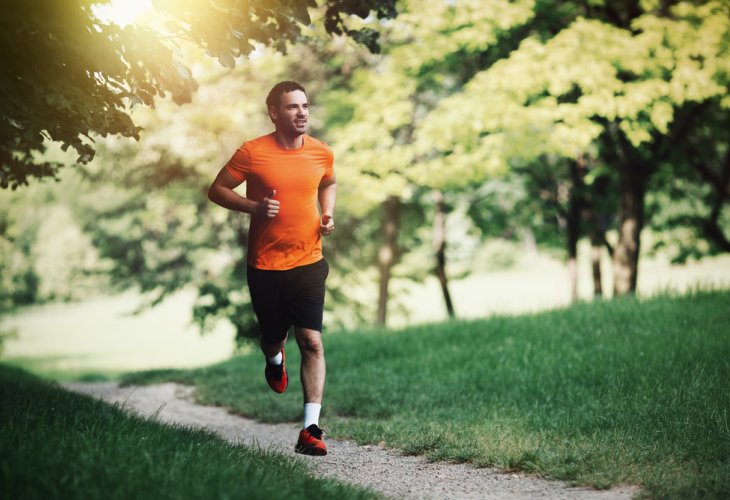Health and Nutrition
Shabbat and the Body: Understanding the Prohibition on Exercise
Many types of physical activity are forbidden on Shabbat according to halachah. Learn the Torah's perspective on rest, health, and sacred time
 (Photo: shutterstock)
(Photo: shutterstock)To the outside world, Shabbat may look like a day of rest and pleasure. But in Torah life, the pleasure of Shabbat isn’t about indulging the body — it’s about nourishing the soul. Every permitted physical action is meant to serve a greater goal: deepening our connection to kedushah (holiness), to Torah, and to Hashem.
Whether walking to synagogue or enjoying a meal, we are not retreating from the world to relax — we are ascending into a higher dimension. The body joins the soul in honoring the day, but the soul leads the way.
Walking with Purpose
The prophet Yeshayahu (Isaiah) taught:
“If you restrain your foot because of the Shabbat, from pursuing your desires on My holy day … and you honor it by not going your own way, or seeking your own pleasure, or speaking your own words...” (Yeshayahu 58:13).
From this verse, the Sages of the Talmud (Shabbat 113a) derived that our behavior on Shabbat should be distinct from the rest of the week. One shouldn’t walk in a hurried, harassed way — nor should one walk in an overly casual, aimless way.
Running on Shabbat is generally discouraged, unless one is running to do a mitzvah, such as getting to synagogue or a Torah class. In such cases, running is not only permitted, but praiseworthy. It shows love for the mitzvah, and Hashem rewards it.
Even Permitted Actions Must Be Spiritually Anchored
Running to avoid getting soaked in the rain, to escape a dangerous dog, or to avoid contact with negative spiritual influences of any kind, is also permitted. These are practical needs, not pleasures.
However, we must take care not to turn Shabbat into a day of random errands or physical exercise under a spiritual label. Anyone who genuinely enjoys running and jumping may do so on Shabbat as long as it is done for pleasure and not for exercise.
Similarly, children may play games involving running, jumping rope, or marbles (as long as the games don’t involve prohibited actions like digging or smoothing the ground). Still, even during permitted play, care should be taken not to get carried away or shift the tone of Shabbat from spiritual to recreational.
Shabbat Is Not a Workout Day
Deliberate exercise and workouts are forbidden on Shabbat, even without equipment. If a person is exercising with the goal of fitness or exertion, it contradicts the spirit of the day.
Going for a stroll after a meal for health reasons or enjoyment is permitted. But we should not turn Shabbat into a day of extended strolls, outings, or lounging with no spiritual focus. The body is given rest on Shabbat so that the soul can elevate itself.
As our Sages taught:
“Shabbat and festivals were given to the Jewish People so that they would occupy themselves with Torah.”
Swimming and Bathing: A Slippery Slope
Swimming on Shabbat is generally forbidden, even in a private pool or a natural body of water like the sea or a river. The Sages were concerned that one might come to make a flotation device, or end up squeezing out water from clothing, both of which are melachot (creative work) which are forbidden on Shabbat.
A children’s paddling pool in a private yard may be used on Shabbat, as one is not concerned about the possibility of making a flotation device in what is essentially a container of water.
However, the prevailing custom in all Torah communities is not to immerse one’s entire body in water on Shabbat (due to the above concerns regarding melachot) and therefore if children do want to play in a paddling pool, they should only dip parts of their body in the water and great care must be taken to ensure they do not squeeze water out of either their hair or their clothing.
Let the Soul Take the Lead
Shabbat invites us to elevate our lives above the mundane. Physical activities — eating, walking, even playing — are not prohibited in themselves. But when they become the focus rather than the vehicle, we’ve missed the point.
The body rests so the soul can rise. The table is set so we can sing zemirot and discuss Torah topics. The walk is taken so we can enjoy the tranquility and appreciate the pause in our too-active, too-busy lives. That’s the beauty of a Torah Shabbat: the outside world doesn’t stop for us to indulge in it — it quiets down so we can finally listen to what’s going on inside.

